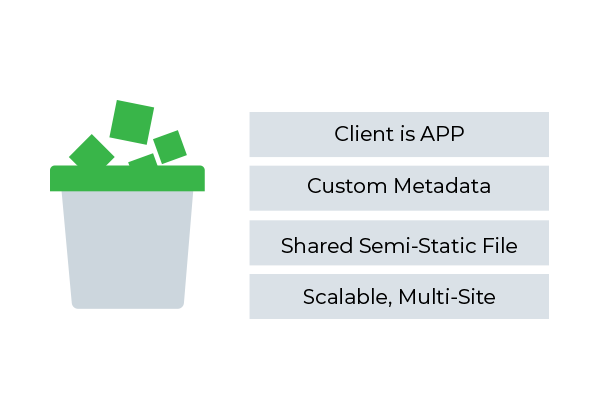What is software defined storage?
Software-defined storage (SDS) abstracts storage resources from the underlying physical storage hardware and are therefore more flexible.
Programmability enables SDS to scale-out rapidly and automatically adapts to new demands.
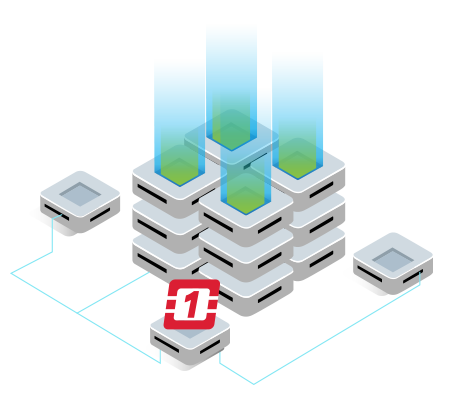
1STACK’s stable of SDS solutions breaks down cost and performance barriers to create unified, centralised, virtualised, and performance driven storage ecosystem to meet the most exacting workloads. Used as part of 1STACK private cloud or as a standalone storage connected to your existing infrastructure, we deliver reliability and high performance without the premium pricing. This breakthrough in price performance is achieved by using open computing software such as OpenStack and CEPH, and augmented with baremetal servers and open networking switches.
• Data high availability and uninterrupted access
• Enhance application performance and response times
• Automate data services, such as tiering, snapshots, replication, etc.
• Provision and extend your storage on demand
• Scale compute and storage independently

Scalability
Scale-out your storage capacity and performance on demand, as data grows predictabably or otherwise.

Availability
Protect your data against specific disk, node, rack and site outage.

Performance
Deliver millions of IOPs to your most demanding applications.

Flexibility
Simplify your storage management. Block storage, Shared / parallel file systems and Object storage.
Scale-out Block Storage
• Optimized for maximum performance and flexibility
• Fully compliant with industry standards
• NVMe/TCP support
• Block storage protocol support
• High performance raw and durable volumes
• Enhance storage performance
• Erasure coding across nodes
• Compression and decompression @ line rate of 800 Gbps
• Lossless compression of JPEG files (25% file size reduction)
• Virtualized secure multi-tenant support
• REST API and Container Storage Interface (CSI)
• GUI for provisioning and management tasks with smart placement
• Turbo-charge your application’s performance with integration to VMware
• Integrate with 3rd-party tools such as BeeGFS and MinIO to deliver high performance file or object storage services
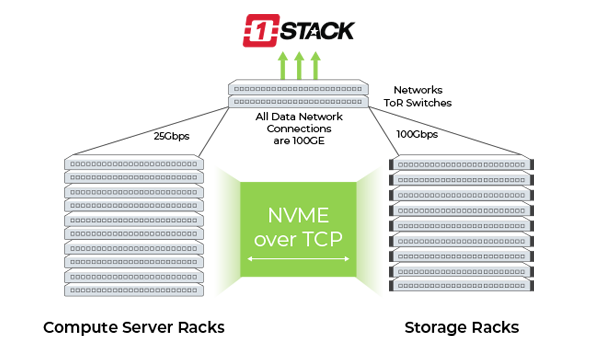
Resilient, Scalable, Automated Self-Healing Ceph Storage Appliance
• Unlimited scalability.
• Highly redundant storage based on Ceph.
• A truly unified software-defined storage cluster that provides applications with object, block, and file system storage.
• Starting cluster from 3x Mars appliance, offer the smallest enterprise storage cluster in the market.
• Self-Healing capabilities.
• Automatic re-balancing for optimized data placement.
• Smallest failure domain in the world, 1 drive to 1 micro-server.
• Low power consumption. Reduce your power bills by 60%.
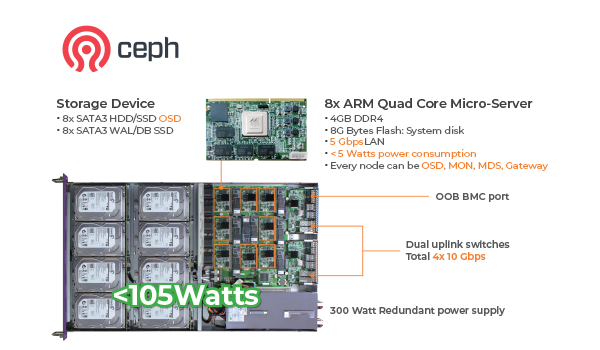
High Performance, Low Latency Storage Using NVMe over TCP
• Maximize resource utilization and improve operational efficiency
• High performance NVMe storage that scales with simple & efficient TCP/IP
• Accelerate data services – Compression/Erasure Coding/QoS
• Improving NVMe SSD endurance, ie reduce TCO
• Build a cloud-optimized solution with software defined provisioning via API
• Support Multi-tenancy
• Affordable and easy to deploy
• NVMe drives perform as if directly attached
• Pooled storage
• High scalability
• Turbo-charge your application’s performance with integration to VMware
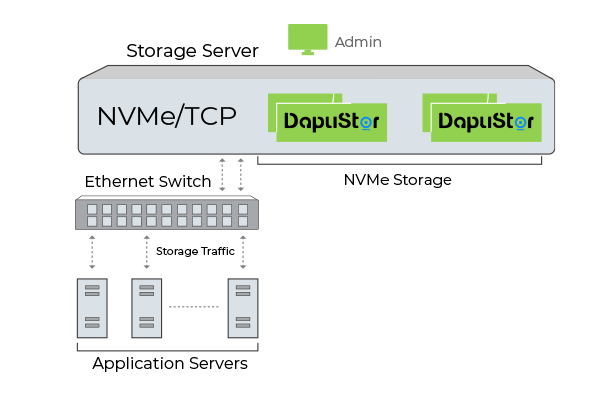
What We Do
On-demand Storage Provisioning
Policy-based, self-service storage as a service.
Multi-tier cloud- native storage
Get more out of your cloud-native container application performance by differentiated storage tiering based on application requirements.
Big data
analytics
Build huge lakes of data to be retrieved and analyzed quickly and securely for better business insights.
Private/Hybrid/ Multi-Cloud
Store, back up and retrieve petabytes of data flexibly and reliably, on-premises and across sites and clouds. Make data storage easier to manage and protect at remote offices and branch offices.
Block Storage Brings Structure
Data stored in fixed-size ‘blocks’ in a rigid arrangement – ideal for enterprise databases.
High availability and performance are two key characteristics of block storage, making it ideal for low latency, high transaction environments. If something changes, you only need to update a few blocks instead of the whole piece of data. From a business decision perspective, block storage provides the foundation to support mission- and business-critical applications in a reliable, fast, and efficient manner.
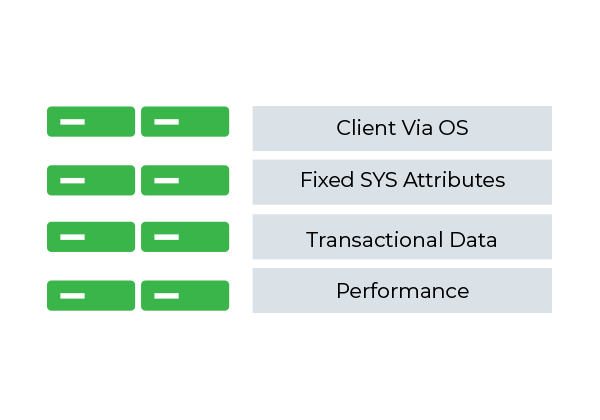
File Storage Facilitates Collaboration
Data stored as ‘files’ in hierarchically nested ‘folders’ – ideal for sharing active documents.
You can have multiple people access and work on the same file, and the file system will manage those versions and updates accordingly based upon what a specific user is authorized to do. From a business decision perspective, file storage helps various users transform data into consumable pieces of information such as documents, images, audio, video, graphs, etc.
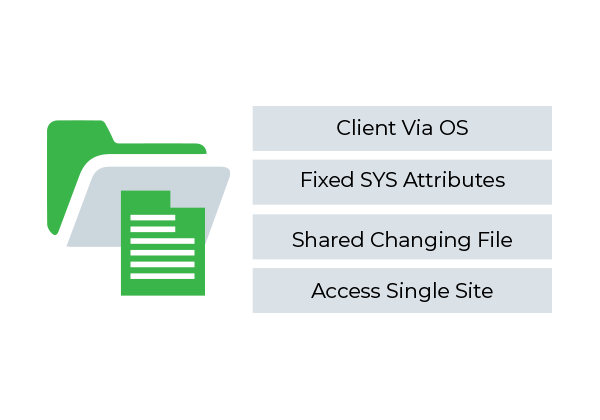
Object Storage Enables Long-Term Distributed Access
Data stored as ‘objects’ in scalable ‘buckets’ – ideal for unstructured big data, analytics, archiving and cloud-native applications.
Object storage is ideal for large-scale data sets because object storage software can be installed on economical servers and data can move freely around the system. The object storage software can continue to add resources and continually optimize and balance the entire storage solution.
